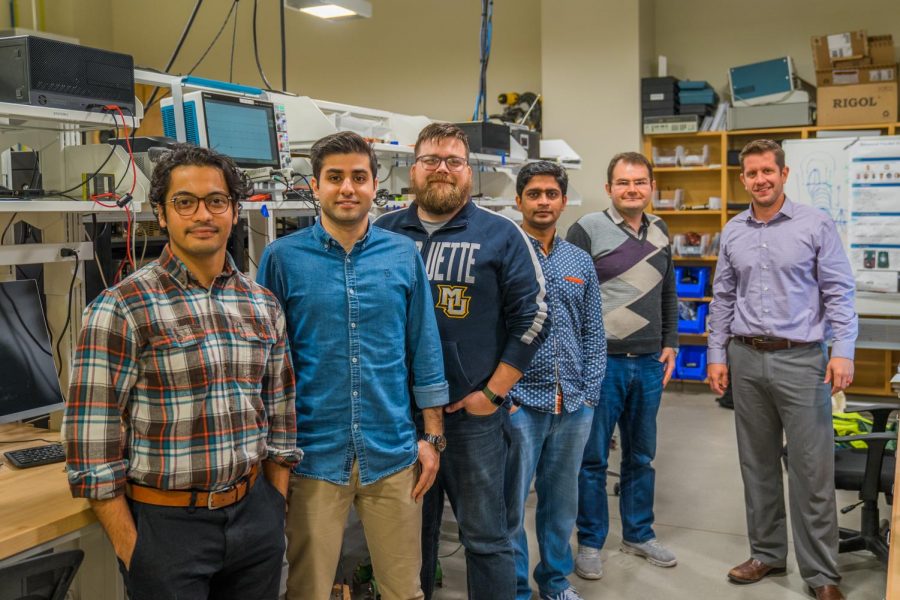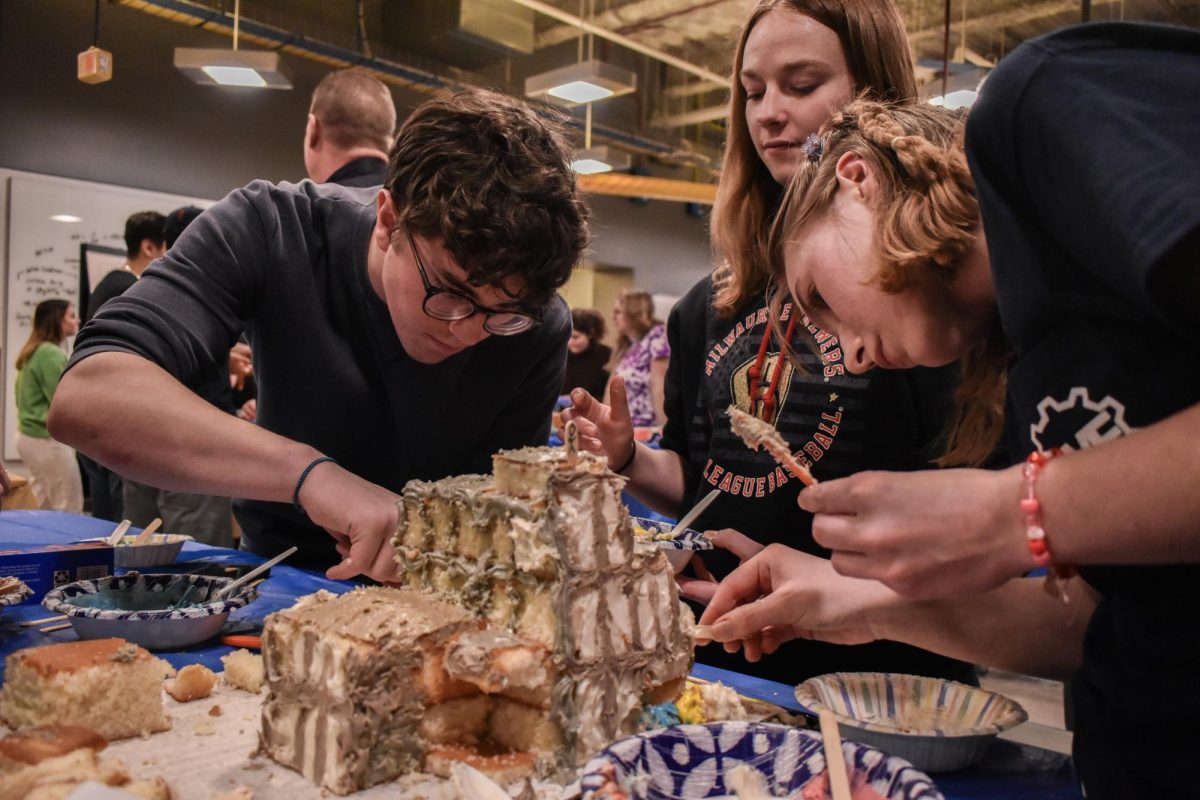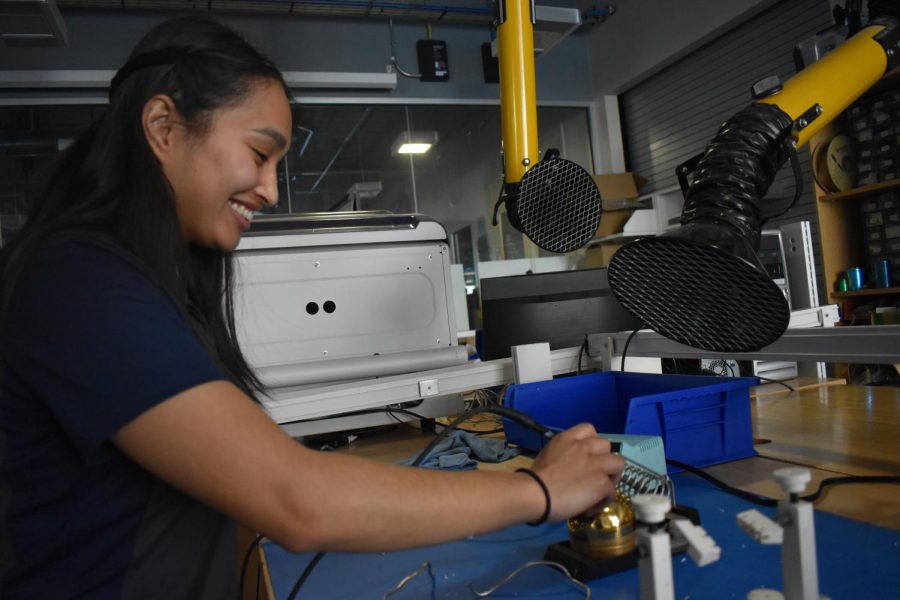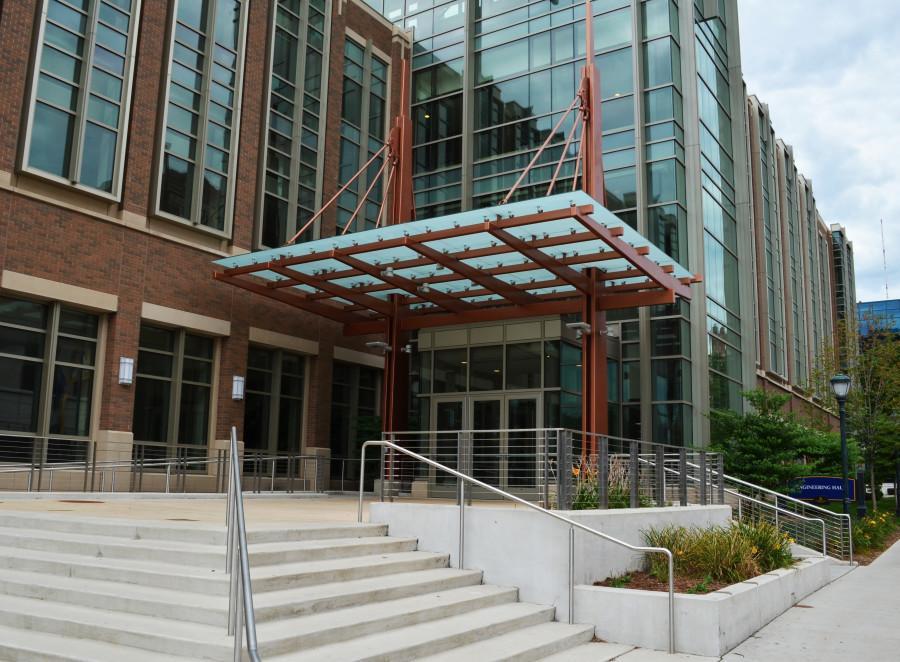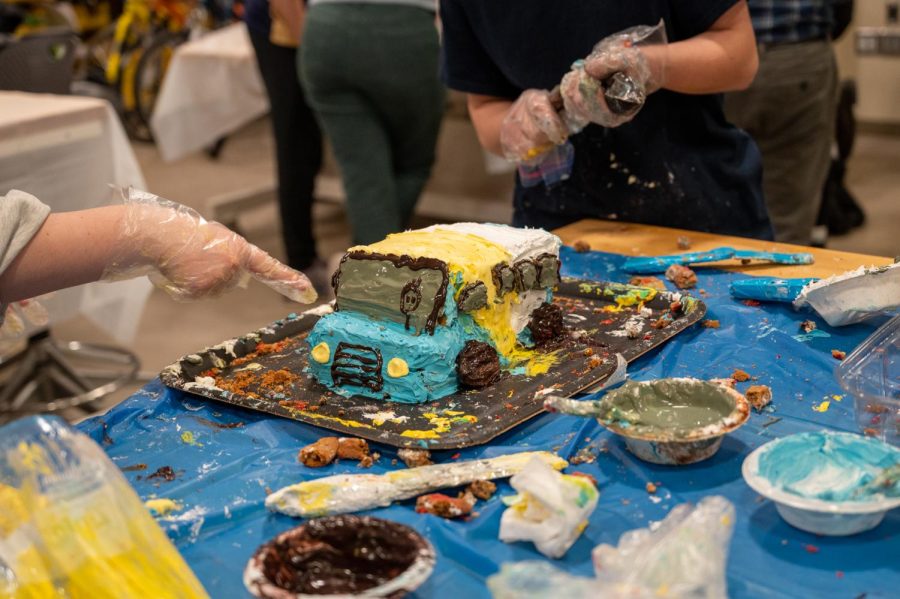When he first got the news that his team won a $500,000 grant from the Department of Energy, College of Engineering graduate student Matthew Hughes, who was heading to class, thought he was in big trouble.
Hughes vividly described how assistant professor of electrical and computer engineering, Nathan Weise, broke the news.
“I was a TA, and I had to leave for office hours because I did not want to be late,” Hughes said. “Then, I got a text from one of our previous teammates who was in the room (with Dr. Weise) and said that Dr. Weise was upset that I left and that I needed to come back. So I came back and everyone was quiet; I knew something was not right. He eventually said, ‘now that Matt has decided to join us, congratulations, we got BREAKERS.”
The grant is part a program called BREAKERS, or Building Reliable Electronics to Achieve Kilovolt Effective Ratings Safely, according to an Oct. 22 university news release. The program is offered by the Advanced Research Projects Agency-Energy, a U.S. government agency under the federal Department of Energy.
Along with Hughes, graduate students Waqar Khan, Armin Ebranhimian and MD Rakib Rahman, worked alongside Weise to construct their project, “Ultra-Fast Resonant DC Breaker.” According to the release, BREAKERS seeks to develop new medium-voltage, and DC works to better manage power by eliminating electrical faults.
The Marquette team was faced with tough competition, Khan said.
“We were competing against some heavy hitters … ABB, Eaton, NC State, Georgia Tech and others, so even just being amongst those awardees is always a huge deal for us.”
Going into the competition, the group wanted to create a system using direct current, according to Weise.
“DC systems provide a significant amount of benefits compared to AC (alternating current) systems,” Weise said. “(They offer) more resiliency and stability and DC has now become more favorable.”
Hughes said one of the biggest parts of the project was designing a new type of breaker for DC current.
“We are on the edge of this and we are asking industries to come up with designs and equipment that do not exist,” Hughes said. “We are pushing the boundaries of everything.”
Hughes said during the times of Edison versus Tesla, AC systems were more popular since they could transfer power at a longer distance. With the growth of technology over the years, DC systems have been in high demand since many technological devices such as solar powers, laptops, cellphones and batteries run off of it.
The lab did come with challenges, however, which was coming up with ways to protect DC systems against faults.
“Faults may include a tree falling on an electrical line to a squirrel chewing on a transformer to natural disasters,” Weise said. “When those happen, large amounts of current flows and that can cause fires, so you always try to put in protection devices that sense those faults in order to not have additional failure and more damage.”
Khan said Weise is one of the best people he has worked with.
“He has a great intellect and he is the guy we go to if we have any problems. He has a really strong work ethic and he has been there for us until two in the morning at times and has helped us push the project to where it is at,” Khan said.
Ebranhimian said he believes Weise’s thought process is unique, and it helped them become more of a team.
“I have understood that (Weise) looks at issues from different specs,” Ebranhimian said. “His thinking was something new (to me) and I really like that. He is challenging and that is really good because it will help us succeed. We are completely a team here.”
Weise said students in the lab work hard on everything they are doing.
“They are all self-motivated and are excited. If you like what you are doing, it doesn’t become a job, but it becomes more fun. Overall it has been a great experience,” Weise said.
Being involved with the project, allows students to get hands on experience with top-notch equipment, but also gives them the opportunity to add to their respective portfolios in their achievements, Ebranhimian and Khan said.
“The fact that we are working and dealing with things that are top of the line is very important,” Ebranhimian said.
Khan said Weise is not afraid to put in money, especially for his labs.
“He has top notch equipment, work stations that are industry standards. It makes me happy because whatever we learn here will also be in the industry,” Khan said.
Khan and Hughes expressed their gratitude and excitement in being part of the experience of working with Dr. Weise and being able to utilize efficient and reliable technology.
“It’s a big deal being with this lab,” Khan said. “I thank Weise for giving me this opportunity.”
“I am excited to be here,” Hughes said. “I’m excited to put in the work and I am glad to have the opportunity to do so.”
Motivated by the student engagement in the lab, Weise said the students are fun to work with.
“These students are awesome,” Weise said. “I can pretty much tell that they are excited because they come and ask questions everyday.”
Visit MUEnergylabs.com to learn more about the students and professors that helped construct the lab.

